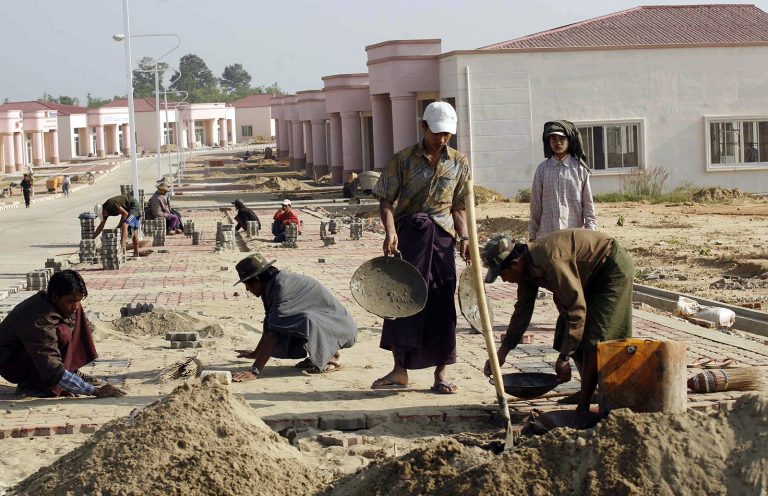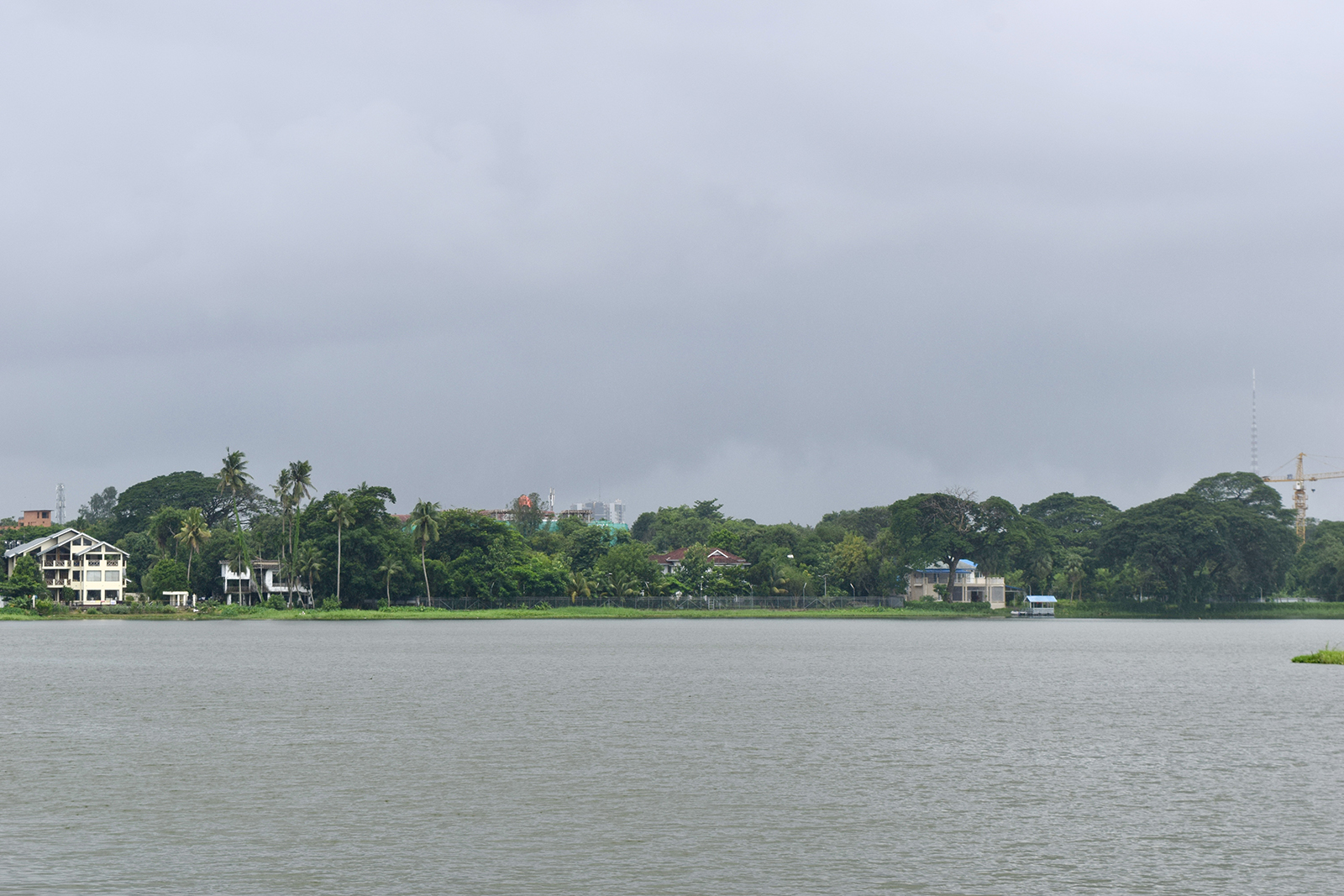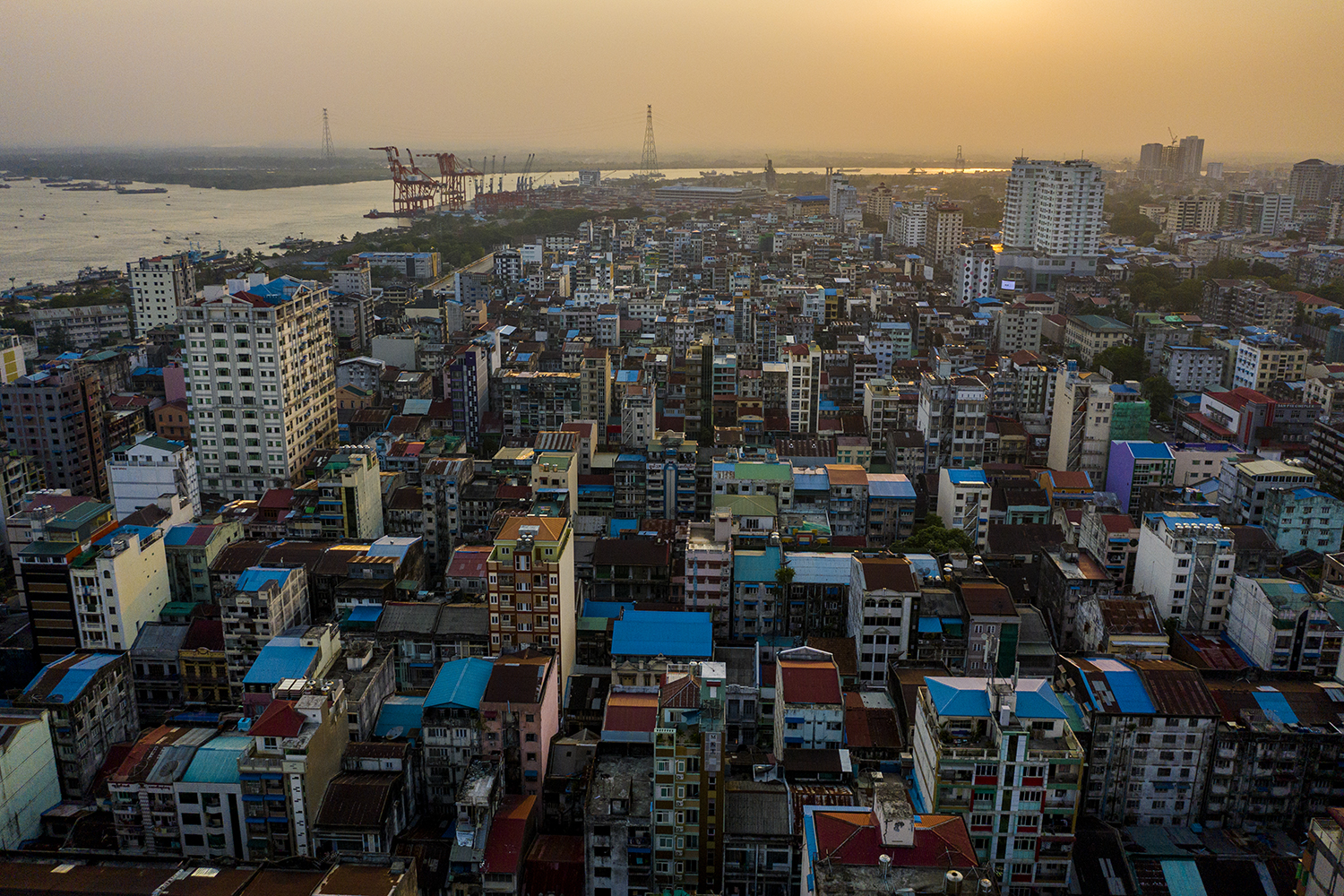Some high-rise projects in Yangon are being suspended as part of a campaign by an elected member of the city council to ensure compliance with building and zoning regulations.
After three years of debate in the Union parliament, the Condominium Law was finally approved on January 22. Real estate market sources told Frontier they hope the law, that lifts a ban on foreigners buying condominium units, will revive the condominium and apartment market, which has been flat since 2014. The law allows foreigners to own up to 40 percent of the units in a condominium.
The long-awaited passage of the Condominium Law comes as another contentious issue looms over high-rise building projects in Yangon.
“I’m trying to suspend most of the high-rise buildings of Yangon because they are against the rules and zoning plan,” U Khin Hlaing, an elected executive member of the Yangon City Development Committee told a news conference at his City Hall office on January 22, the day the Condominium Law was approved.
U Khin Hlaing was actively involved in the successful campaign last year to stop five big real estate projects near the Shwedagon Pagoda, including the US$300 million Dagon City 1 development on which work had begun. The government cancelled the projects amid concern they could cause structural damage to the pagoda, the nation’s most revered Buddhist site.
U Khin Hlaing stressed that he did not want projects to be cancelled.
Support more independent journalism like this. Sign up to be a Frontier member.
“I do not want projects to stop permanently, but they need to be halted temporarily so they can be checked again,” he said.
“My team is starting an inspection survey in Yangon to decide which projects should be suspended.”
U Khin Hlaing said he had already suspended work on a 12-storey building at 74 University Avenue and wanted to suspend work on two condominium projects on Kabar Aye Pagoda Road, 68 Residence and Infinity Luxury.
The YCDC has the authority to grant permission for buildings of up to 12 storeys in the municipal area but higher structures need the approval of the Yangon regional government. The procedure requires the YCDC’s building engineering department and other departments to submit evaluations, comments and recommendations to the regional government
U Khin Hlaing said a “problem” with the procedure was that the regional government can give permission for projects to proceed regardless of the YCDC’s departments’ assessments.
“For example, the departments wrote in their report on 68 Residence that it had breached the rules for floor area ratio (FAR) and other rules for high-rise buildings,” he said.
The report also raised a concern about traffic. “The residents of the condo will own almost 400 cars and it will be problem because the condo is on a very busy intersection,” U Khin Hlaing said.
Frontier tried unsuccessfully to seek a response to U Khin Hlaing’s comments from the developer of the 68 Residence project.
U Khin Hlaing said after he suspended work on the 12-storey building at 74 University Avenue its owner had sent a letter of complaint to the Yangon Region Chief Minister, who was yet to respond.
A spokesperson for the project, U Kyaw Htoo, told Frontier the halt to work would be temporary and efforts were being made to negotiate with the neighbours who had complained about the planned height of the building. The project would not be abandoned, he said.
U Khin Hlaing said the building was in breach of Yangon City zoning regulations because it was in an area with a height limit of four storeys.
“The authorities are not following the rules and city plans which they enacted; perhaps they are involved,” he said. “This is why the city’s appearance is becoming chaotic and its heritage is threatened.”
U Khin Hlaing said he wanted all high-rise projects in breach of building and zoning rules to be suspended until after the new government took office and appointed a new Yangon mayor, five new executive members of the YCDC and a new Yangon Region chief minister.
“After that has happened, we can discuss and decide the future of the high-rise buildings,” he said.







